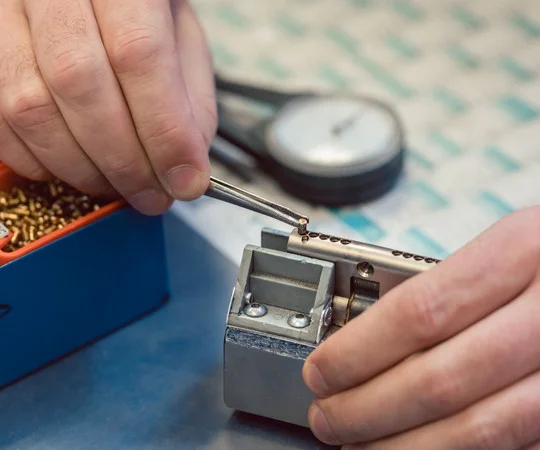Locksmith Rekeying Services
At Balport Lock & Safe, we understand the importance of securing your property. One of the most effective ways to ensure the safety of your property is by rekeying your locks. In this guide, we will take you through everything you need to know about rekeying your locks, from what it is to why you should do it and how to do it.
What Is Rekeying?
Rekeying is changing the tumblers in a lock to only work with a new key. Any lost or stolen keys that will no longer open the lock.
It’s a simple and affordable way to upgrade your security without replacing your locks entirely. It’s cheaper than lock replacement while offering the same level of protection.
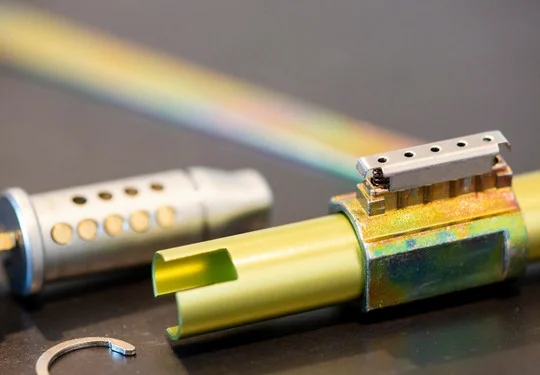
Balport’s lock technicians are:
- Licensed, bonded, insured & background checked
- Experienced & trained in the latest lockout techniques
- Available 24-7 for emergency lockout services
- Friendly & professional
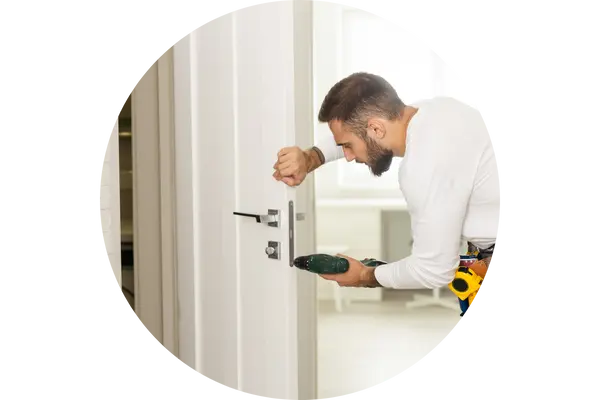
Why Should You Rekey Your Locks?
- Lost or stolen keys: If you’ve lost track of a set of keys outside your home, rekeying your locks ensures that anyone who finds your old keys cannot access your property.
- Change of ownership: If you’ve just moved into a new property, rekeying the locks prevents previous owners, tenants, or their friends from accessing your property.
- Security upgrade: Rekeying your locks is a quick and affordable way to elevate the security of your property, especially if you’ve recently experienced a break-in or attempted break-in.
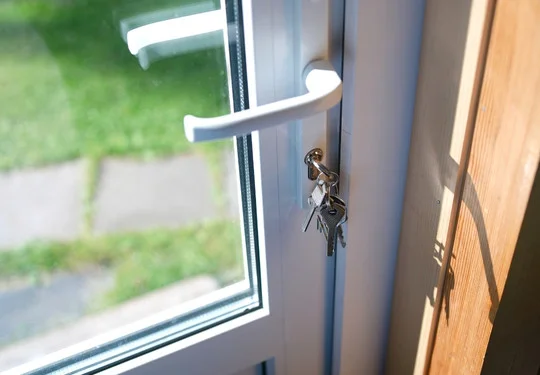
More on Our Lockout Services
The names sound similar, but “rekeying” and “key duplication” describe different things.
- Key duplication creates an exact copy of your existing key.
- Rekeying involves changing the tumblers in your lock to only work with a new key. Any old keys will no longer work.
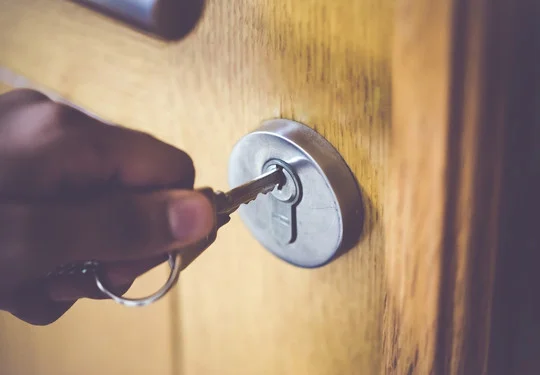
Why It Pays to Have a Professional Rekey Your Locks
While a DIYer with the right tools may be able to rekey their locks, a professional locksmith will do the job correctly and verify the locks are secure.
- Enhanced security: We’re trained to identify your locks’ vulnerabilities and will recommend upgrades if necessary.
- Cost savings: Replacing locks can be costly and time-consuming. But with rekeying, we can adjust the tumblers inside the lock to open only with a new key, saving the cost of purchasing new locks and the time to install them.
- Convenience: Rekeying can be done on-site. We’ll come to your location and rekey your locks in minutes.
- Expertise: We have the rekey even the most complex locks. And we have access to the latest tools and technology. We’ll rekey your locks quickly and securely, guaranteeing all work.
Frequently Asked Questions about Rekeying
How long does it take to rekey a lock?
Rekeying usually takes only a few minutes per lock.
What is the cheapest way to change locks on a house?
Rekeying is the cheapest way to change locks. It costs much less than replacing them entirely and offers the same level of security.
Can I rekey my own locks?
Maybe, but we don’t advise it. Professionals will ensure that all locks meet security standards. The DIY repair isn’t worth the few dollars you may save.
Should I change the locks when I buy a new house?
Yes. We recommend rekeying your locks when you purchase a new home. You never know who has access to the property; rekeying will ensure only you have access.
Can I use a master key system with rekeying?
Yes. We can install a master key system to give you access to your property with one key while each lock is rekeyed to a single key.
How many times can you rekey a lock before you have to replace it?
Most locks can be rekeyed up to 10 times before needing replacement.
Do you need to change the cylinders when rekeying locks?
Not always. We’ll inspect the existing cylinders and suggest replacements if needed.
What's the difference between deadbolts and standard lock cylinders when rekeying?
Deadbolt locks typically have a single key cylinder, while traditional lock cylinders have two. Rekeying a deadbolt requires only one rekey, while standard locks need both cylinders to be rekeyed.
